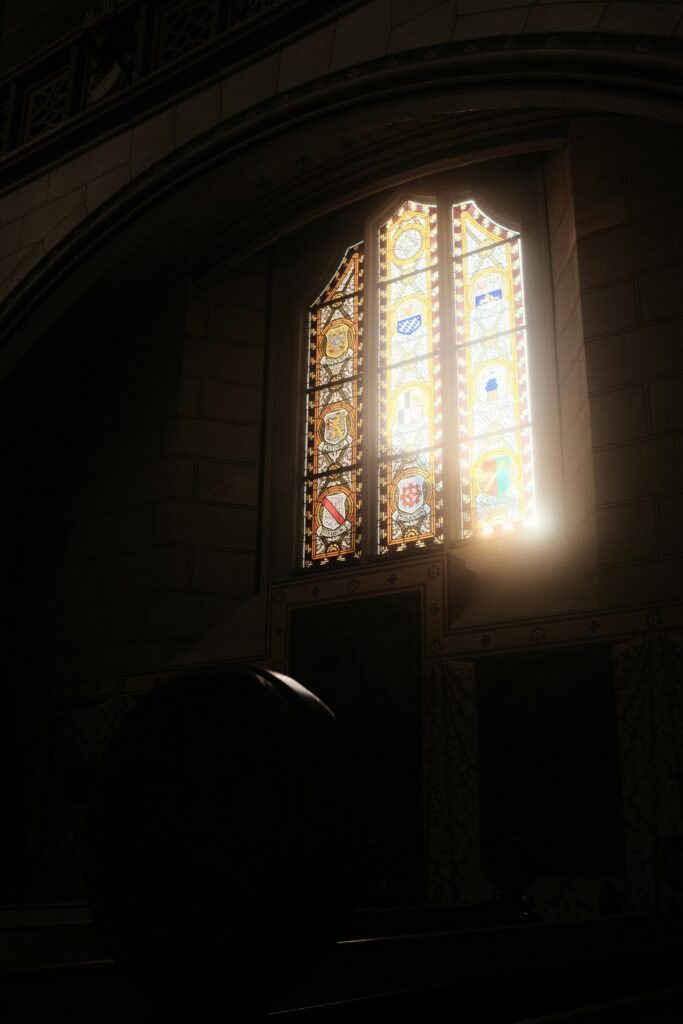Jesus Wasn’t a Christian: Reclaiming The Radical Roots of Faith
It’s true.
Let’s start with a jarring truth: Jesus wasn’t a Christian.
That statement might sound like clickbait or blasphemy, depending on your background. But it’s neither. It’s just a fact. Jesus didn’t come to start a new religion. He wasn’t recruiting for Christianity.
He was a Jewish rabbi and reformer who taught a radical way of love, justice, and liberation. What we now call “Christianity” was a movement that emerged after his death—and in many ways, it has strayed rather far from what Jesus actually preached.
So the question is: If Jesus wasn’t a Christian, then what does it really mean to follow him today?
The Historical Context We Ignore
Jesus lived and died as a devout Jew. More than just his identity, this was also his vocation. He preached and taught in synagogues. He celebrated Jewish festivals. He followed the Torah (or the Hebrew/Jewish law). As such, he wasn’t trying to replace Judaism, but to reform it from the inside—to call people back to its deepest values of justice, mercy, and love.
His liturgical reforms weren’t about abandoning ritual, but about reclaiming it for its intended purpose: to draw people toward God and neighbor. He challenged hollow worship—rituals performed without justice, prayers spoken without compassion. “Go and learn what this means: I desire mercy, not sacrifice,” he said. He called out religious leaders who used their roles to maintain status and power rather than to serve the people.
Socially, Jesus turned the hierarchy upside down. He consistently sought to embrace those who’d been pushed to the margins—women, lepers, foreigners, the poor, and the excluded. He told the rich to give their wealth away; he urged the powerful to give up some of their power so that those with none might finally have some; and he exposed hypocrisy at every turn. He engaged directly with political authorities, refusing to endorse the empire or bow to its demands. His call was clear: the Kingdom of God isn’t built through domination but through love, justice, and radical inclusion.
From “The Way” to Empire
Early followers of Jesus didn’t even call themselves “Christians.” They were known as followers of “The Way”—a grassroots movement rooted in Jesus’ teachings and way of life. They gathered in homes and shared their resources. And they sought to defy Rome’s violent, oppressive power not with weapons or uprisings, but with compassion and courage. The early Church was defined not by hierarchy but by a shared commitment to love and liberation.
But over time, this movement transformed. When the Roman Emperor Constantine converted to Christianity in the 4th century (for very political purposes), Christianity was co-opted by empire. What had been a countercultural movement became an instrument of imperial control. The cross—once a symbol of state violence—was, in many ways, repurposed as a banner for conquest.
From there, the Church’s entanglement with power only deepened: crusades were waged in the name of Christ. Colonization baptized violence in religious language. Forced conversions, cultural erasure, and systemic oppression were all justified as God’s will. The Church became more invested in maintaining authority than embodying love.
Today, we see echoes of this legacy in Christian nationalism (read more)—a movement more concerned with dominance than discipleship. And it’s here that another transformation took root: Christianity didn’t just align itself with power, it began to police thought and belief.
How We’ve Lost the Plot
Let’s be honest: the Church has missed the plot.
Instead of embodying the love of Christ, too much of modern Christianity has become obsessed with beliefs about Jesus rather than practices that follow him. We’ve created institutions that care more about orthodoxy than compassion, more about being right than being kind.
We’ve turned a revolutionary into a mascot, replacing Jesus’ call to discipleship via radical love and grace with rules about who’s in and who’s out. We’ve twisted and weaponized Scripture to justify exclusion. And we’ve built doctrines that divide, rather than relationships that heal.
Rigid theologies, gatekeeping doctrines, and black-and-white thinking have led so many Christians to see the world through a lens of fear and exclusion. The need to be “right” has eclipsed the call to be loving. In the name of purity, the Church has harmed countless people—women silenced, LGBTQ+ people condemned, the doubting shamed into silence.
This kind of fundamentalist rigidity doesn’t protect faith—it poisons it! It creates insiders and outsiders, elevates certainty over compassion, and turns the Gospel into a checklist rather than a calling. And the more we cling to control, the more we distort the message we were given. Jesus didn’t come to start a purity cult. He came to heal the broken, welcome the outcast, and proclaim good news to the poor.
Reclaiming the Radical Jesus
To be clear, following Jesus doesn’t mean signing off on a creed or interpreting Scripture a very specific way or saying a specific prayer. It means embodying his way.
It means feeding the hungry, welcoming the stranger, defending the oppressed. It means calling out religious hypocrisy and refusing to be complicit in systems of injustice. It means using our voices, platforms, and privilege to confront bigotry, nationalism, and violence—especially when they masquerade as faith.
Living compassion isn’t about niceness—it’s about proximity, solidarity, and action. It’s listening to those the world silences. It’s standing up when others sit back. It’s making room for every voice at the table—not as charity, but as justice (read more).
Calling out hypocrisy means speaking uncomfortable truths—even in our own churches. It means saying “no” to Christian nationalism, to patriarchy, to white supremacy, and to theologies that dehumanize. It means choosing courage over compliance, and truth over tradition.
Following Jesus is less about going to church on Sunday and more about how we live on Monday. It’s about compassion over condemnation. Curiosity over certainty. Courage over comfort.
It means remembering that the table Jesus sets is wide, open, and overflowing—and there is room for everyone.
So What Now?
It’s time to stop defending Christianity and start following Christ.
It’s time to rediscover the Jesus who turned over tables, lifted up the lowly, and broke every boundary religion tried to build around him.
Let’s reclaim a faith that’s alive, inclusive, and liberating.
If you’ve been told you don’t belong in the Church because of who you are or what you question—hear this: Jesus never said that.
The Church might’ve forgotten who it’s supposed to be. But you haven’t. And neither has God.
Let’s rediscover Jesus. And let’s do it together.
Have thoughts or questions? Drop them in the comments. And if this resonates, subscribe to keep challenging, reclaiming, and reimagining faith that frees rather than binds.







